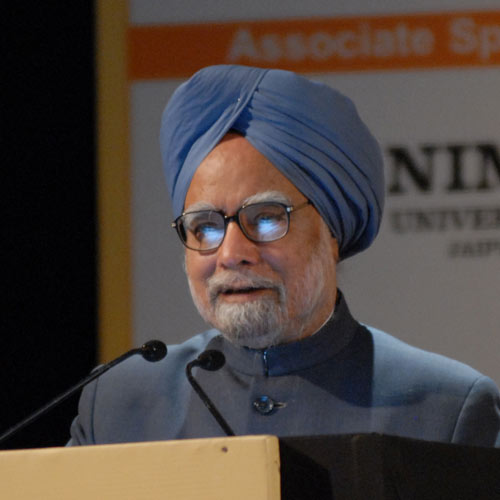
The Reserve Bank's tough measures to arrest rupee's fall will not translate into higher interest rate and the steps will be reversed with easing of speculative pressure on domestic currency, Prime Minister Manmohan Singh said on Friday.
"More recently, it (RBI) took additional steps to raise short-term interest rates. These steps are not meant to signal an increase in the long-term interest rates. They are designed to contain speculative pressure on the currency.
"Once these short term pressures have been contained, as I expect they will be, the RBI can even consider reversing these pressures," Singh said while addressing the annual meeting of industry chamber Assocham.
The Reserve Bank earlier this week announced a slew of measures like raising cost of borrowing by banks by 2 per cent to 10.25 per cent and announcing sale of bonds worth Rs 12,000 crore through open market operations to suck liquidity to check sliding rupee which hit a life time low of 61.21 to a dollar.
Singh said the RBI has done its bit to stabilise market expectations.
Rupee, which plunged to a record low on July 8 has lost 7.3 per cent this year. The currency was trading at 59.84 per dollar in early trade.
Singh said the volatility in exchange rate was caused due to concerns over withdrawal of quantitative easing by the US.
"The most immediate cause of worry is the recent volatility in foreign exchange markets... Large volumes of funds were withdrawn from emerging markets and there was a depreciation in many emerging market countries, including Turkey, Brazil and South Africa," he said.
Singh said the impact on Indian currency was felt more as the country's current account deficit (CAD) was high.
"I expect that the CAD in 2013-14 will be much lower than the 4.7 per cent level recorded last year. It will decline further next year," he said.





0 comments:
Post a Comment